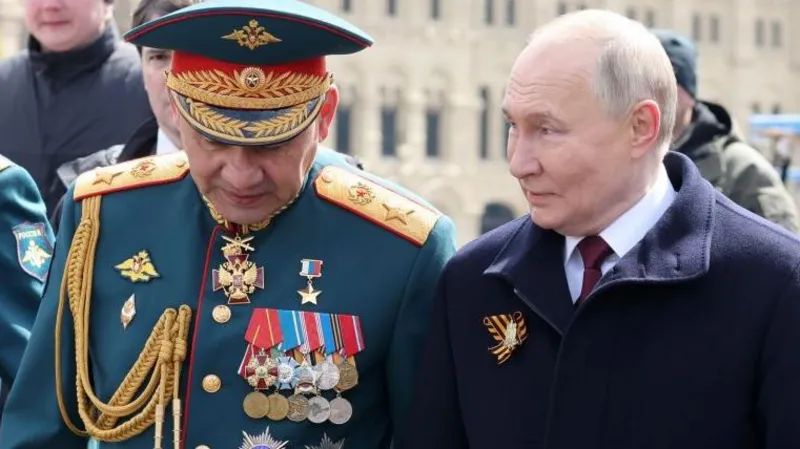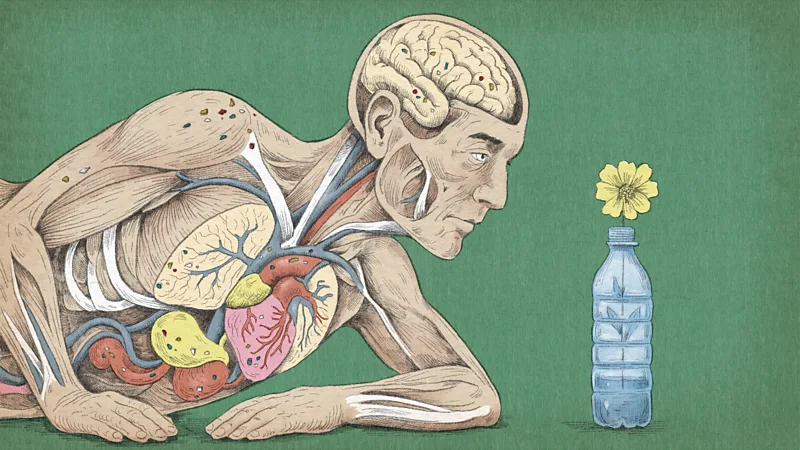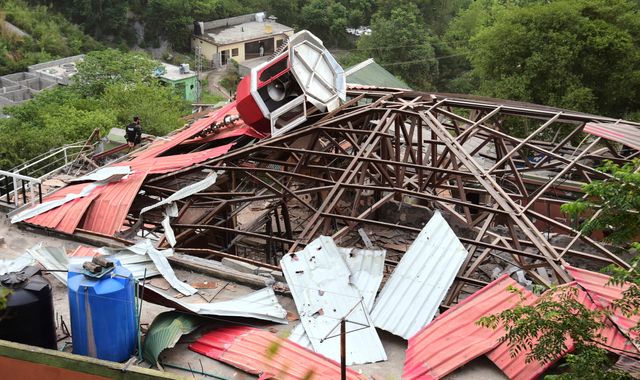Rosenberg: Putin's military purge echoes Prigozhin's call to act
When one top defence official is arrested in Russia, that’s interesting.

When five senior defence figures are handcuffed in less than a month, that’s a purge.
The latest senior military man to be locked up is Lt Gen Vadim Shamarin, deputy chief of the army’s general staff and head of the Main Communications Directorate of the Russian Armed Forces.
Accused of large-scale bribe-taking, he’s been placed in pre-trial detention for two months.
Hours later came the news that a senior defence ministry procurement official, Vladimir Verteletsky, has also been detained. According to Russia’s Investigative Committee, he’s been charged with abuse of authority in the execution of a state defence order.
The roll-call of Russian defence figures who, within a month, have fallen from grace on corruption charges includes Deputy Defence Minister Timur Ivanov and Lt-Gen Yuri Kuznetsov, head of the defence ministry’s personnel directorate.
There’s also been change at the very top of the ministry. In a recent reshuffle, President Vladimir Putin replaced his defence minister of 12 years, Sergei Shoigu, with technocrat economist Andrei Belousov. The move was widely interpreted as an attempt by the Kremlin to boost efficiency in the Russian military and tackle corruption.
Mr Shoigu was given a new job, that of secretary of the Russian Security Council. As for Vadim Shamarin’s boss, Valery Gerasimov, for now he remains chief of the general staff of the Russian armed forces.
But high-profile arrests in the ministry and the general staff reflect badly on the military leadership that has been directing Russia’s war in Ukraine.
Remember Yevgeny Prigozhin? A year ago the leader of the Wagner mercenary group had publicly criticised military chiefs. He’d accused senior figures of incompetence and corruption, and blamed them for failures on the battlefield in Ukraine. Prigozhin had focused his ire particularly on Sergei Shoigu and Valery Gerasimov. He had demanded they be replaced.
The very public spat spiralled out of control, leading to a 24-hour mutiny. Wagner fighters took over key military installations in southern Russia and began marching towards Moscow. It was an unprecedented challenge to the Kremlin’s authority. But its principal aim had been to sweep aside the country’s top military brass.
It failed. President Putin sided with his military chiefs. Prigozhin lost his power battle with Mr Shoigu and Gen Gerasimov. And, shortly after, he lost his life in a plane crash.
But, one year on, a Kremlin-backed purge of the army has started.
And this tells us something about Vladimir Putin. The Russian president is averse to acting under pressure. Order him to sack a minister or an army general, and he’s unlikely to agree to it then and there. He won’t be told what to do.
That doesn’t mean Mr Putin won’t act. At a time of his choosing.
What isn’t clear is how far this purge of the Russian military will go; how many more senior figures will end up behind bars.
The former commander of Russia’s 58th army, Maj-Gen Ivan Popov, was arrested this week on suspicion of large-scale fraud. Last year he had announced he had been sacked after complaining to military leaders about problems on the front line in Ukraine.
-bbc







